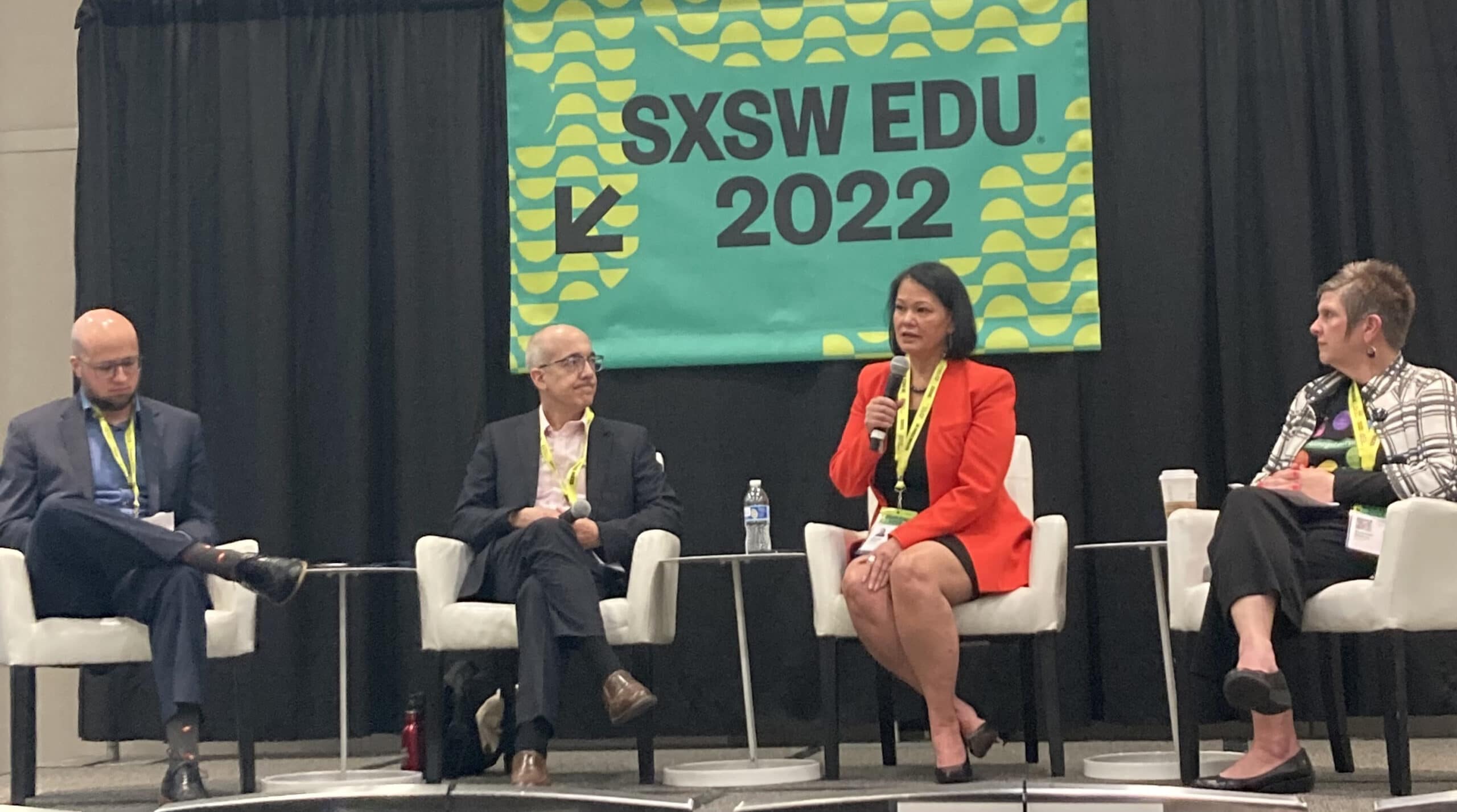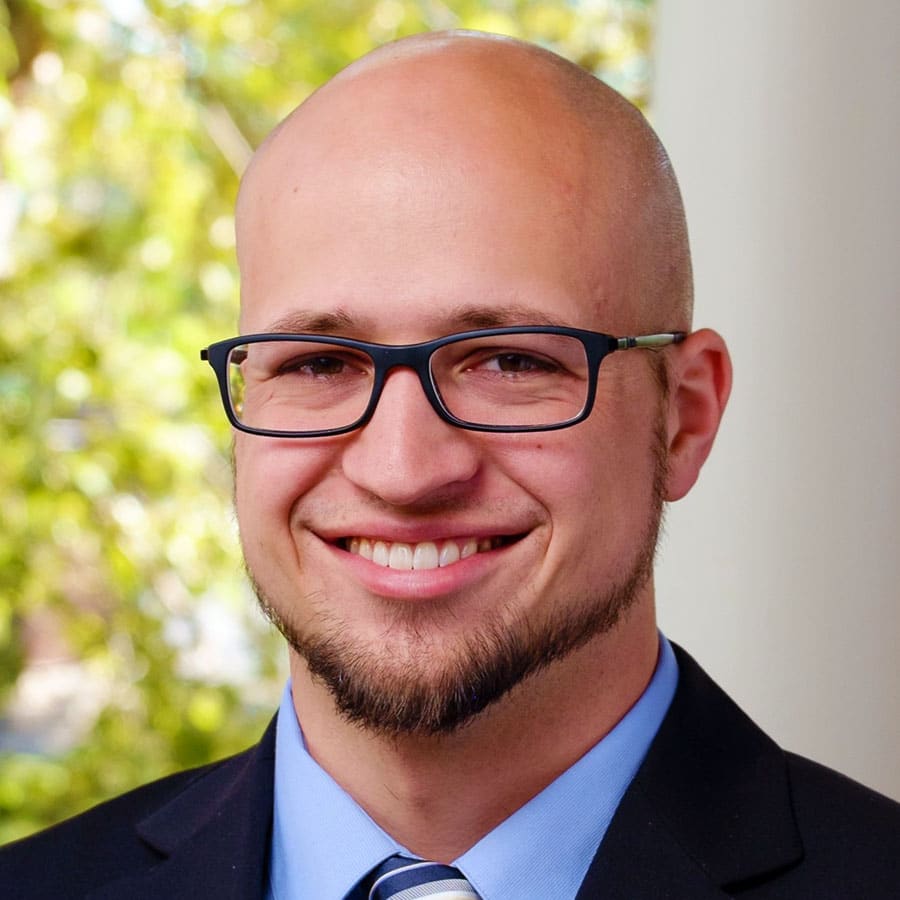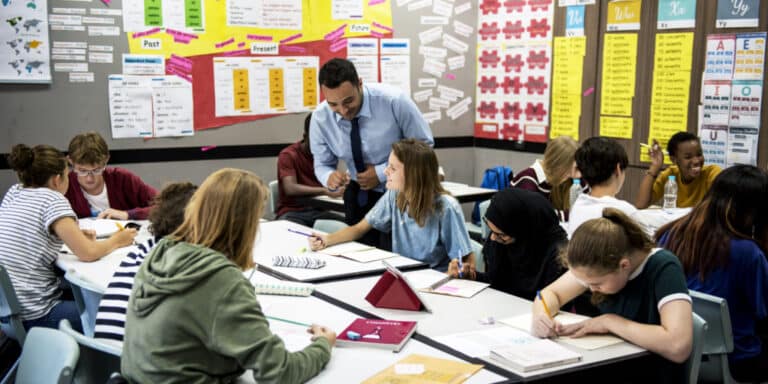It’s never been clearer that our country desperately needs to rethink its approach to how we educate our children. Fortunately, some states are leading the way and reorienting their education systems to be more student-centered and prepare our children for an unpredictable future filled with uncertainties. These states are casting a new vision for learning that empowers each student to own their own learning and ensures that they are prepared for whatever challenges they encounter in the future.
When we make all the decisions for our students, what are we keeping them from doing for themselves? This is what learner agency looks like.
KnowledgeWorks facilitated two panels at SXSW EDU this March that dug into the why and how behind some of our partner states who are leading in this work. Participants at these sessions heard speakers talk about how their communities have worked together to create the kinds of learner-centered education systems that students need as they continue to recover from the pandemic and prepare for an uncertain future.
The first panel was titled “State Actions to Advance Student-Centered Policy” and was moderated by Daarel Burnette from Education Week. It featured Nick Archuleta from North Dakota United, Dr. Jonathan Moore from the Nevada Department of Education and Lillian Pace KnowledgeWorks vice president of policy and advocacy.
The second panel was titled “All In: Transforming Education in Nevada.” It was moderated by Jon Alfuth, director of state policy at KnowledgeWorks, and featured Nevada State Senator Mo Denis, State Superintendent of Public Instruction Jhone Ebert and Churchill County Superintendent Summer Stephens.

The why behind student-centered learning
Both sessions explored the “why” behind each state’s student-centered learning policy and practice. Superintendent Stephens spoke about the systems that she encountered in her Nevada District when she first took over as superintendent. She shared her experience that these systems weren’t designed for true learning and her strong belief in the importance of building systems that develop humans capable of thriving in an ever-changing world. Nick Archuleta highlighted how this approach has brought a “new vitality” to education in North Dakota. He said that parents, students and teachers support it because it “puts students at the center of everything.”
Action needed now
Speakers frequently highlighted that the pandemic has acted as a catalyst to continue the changes that had already been taking place in their states. Both Dr. Moore and Archuleta shared how the pandemic exacerbated existing challenges in their states, such as the challenge of school finance. They also shared how the pandemic exposed other needs that had been lingering below the surface, such as the system’s lack of flexibility to respond to sudden shocks. State Superintendent Jhone Ebert highlighted how “the crisis created [an] opportunity” in Nevada, which resulted in a new state initiative called the Blue Ribbon Commission for a Globally Prepared Nevada. This commission, composed of dozens of stakeholders from across the state, developed recommendations to adjust the state’s policy framework to both meet the needs of today’s learners and to set the stage for innovation over the next 10 or 20 years. KnowledgeWorks Vice President of Policy and Advocacy Lillian Pace also shared that across the country, communities are continuing to discuss how to scale small scale innovations like pilot programs that existed pre-pandemic.
The work takes time
All of our panelists shared their experience that the work of transforming education systems takes time and effort. Archuleta spoke about the transition from No Child Left Behind to the Every Student Succeeds Act several years ago, noting that this allowed North Dakota schools and districts to begin exploring innovative approaches to school that had not been possible previously. Dr. Moore, Superintendent Ebert and Senator Denis spoke at length about the steady progress of Nevada’s work since 2017, when it created the competency-based education pilot. In our second panel, participants noted that even longer timelines can be necessary. Going even further back, Senator Denis spoke about the state’s new student-centered funding formula, noting that it was last updated when he was a first grader decades ago.
It takes a village
Panelists spoke to the reality that transforming education systems takes long-term and intensive stakeholder investment and engagement. Dr. Moore advised other states to begin by identifying a core of leaders before branching out. Archuleta highlighted the cross-sector nature of North Dakota’s student-centered learning coalition, noting that it included K-12 stakeholders, higher education, businesses, the state education agency and nonprofits. Superintendent Stephens highlighted the need for collaboration between districts, the state department and the legislature to produce real change. Superintendent Ebert also spoke to the importance of including student voices in this process. Senator Denis highlighted the importance of building legislative coalitions to create long lasting changes in state laws, giving the state’s funding formula changes as an example of a positive outcome.
Final words
Throughout the panels, participants emphasized that change is never easy and that courage is needed to undertake this urgent and important work. Our world continues to change, and our education systems need to change with them to enable our children to succeed in the future. Senator Denis perhaps said it the best: “If it’s the right thing to do, you need to find people who are willing to do the right thing, regardless of the political ramifications.”
We hope that those attending these two sessions, as well as those reading, will be inspired to undertake similar approaches when pursuing student-centered learning policies in their states. And of course, KnowledgeWorks is always here to help and support. We hope to be back at SXSW Edu again next year to continue sharing the progress of states seeking to create a new future for learning.
Be among the first to see our education policy articles, reports and recommendations by subscribing to our email newsletter.






